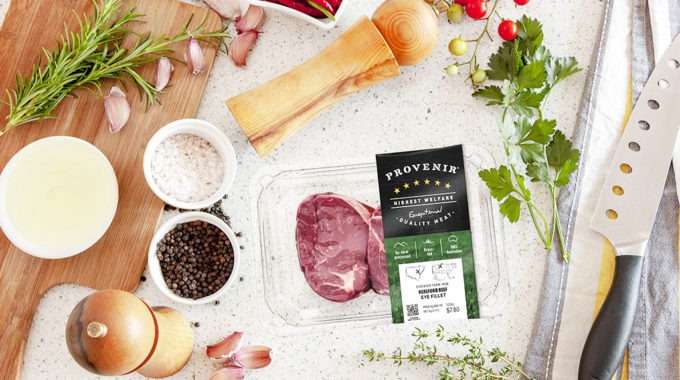Provenir: a better way for beef
It’s common knowledge that a less stressed animal will produce better-tasting meat. Unfortunately, transporting livestock to an abattoir for processing is always going to cause some level of distress, affecting the quality of even the most ethically raised beast. But what if there was another way? A new Australian company has developed a business model that eliminates the need for live transport to an abattoir. Provenir processes livestock at the point of production, on the farm where they were raised.
Provenir was created with a vision of producing Australia’s best beef. The premise is simple: you can’t make amazing beef without having the very best animal welfare. The company operates a mobile, on-farm abattoir that allows farmers to ensure that the animals they’ve put so much care into raising can be slaughtered with the least amount of stress possible.
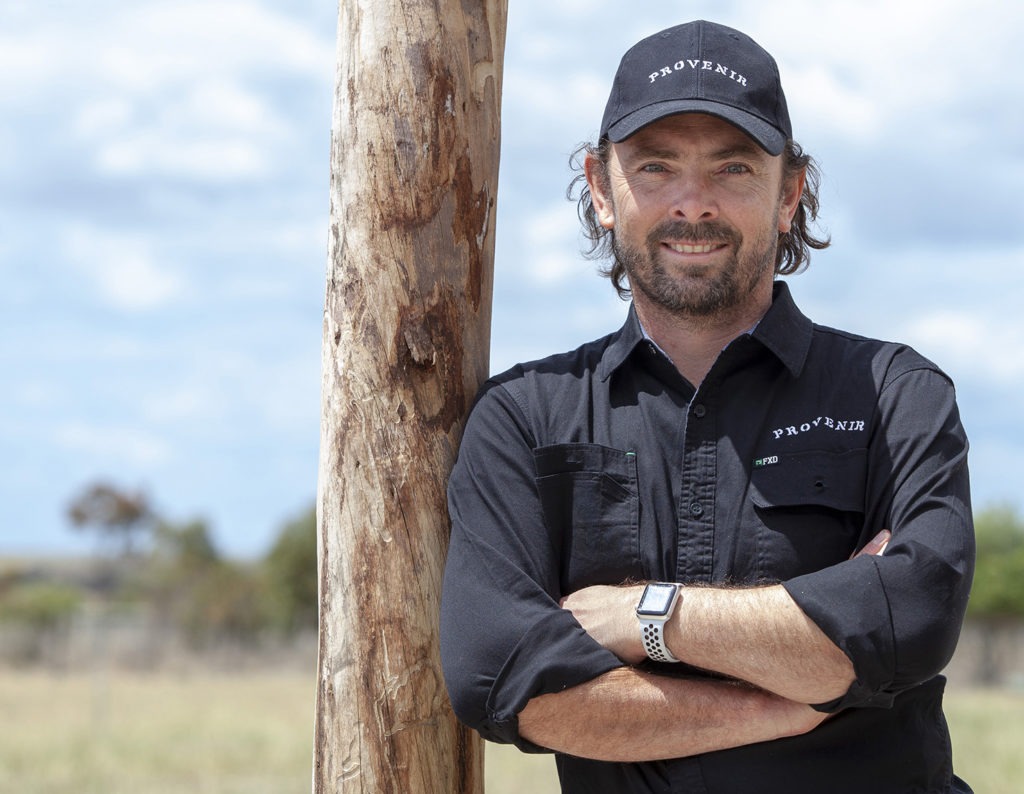
Finding a better way
“As a farmer myself, I hated loading my livestock onto the back of a truck and sending them away,” says Chris Balazs, CEO and co-founder of Provenir. “When I sent my first lot of cattle off to the saleyards, it was a really hollow feeling for me. I’d spent two years raising these animals; I’d worked so hard to get them in top condition only to risk losing it all to a bad trip. I always knew there had to be a better way.”
Provenir is not a service provider for farmers. The business actually buys the meat from the farmers they work with, selling it on to consumers and restaurants. Up until recently, it was against the law to sell meat slaughtered on-farm. But the determined people behind Provenir lobbied state governments and actually managed to change the meat industry act in Victoria and NSW to allow on-farm processing.
“We went to the politicians and said, this is pretty stupid,” Balazs says “If we meet all the standards, all the regulations, what stops an abattoir being in the back of a truck?”
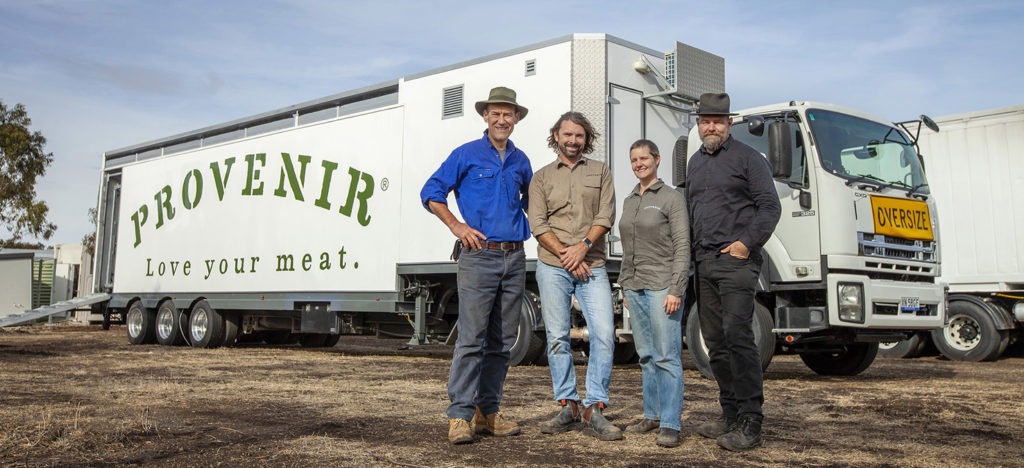
So how does it work?
Cattle are herd animals, which means they feel safer when they’re together. But this doesn’t mean that they like crowds. Quite the opposite, in fact.
“Cows like to be in herds, but they don’t like to be too close to each other,” Balazs explains. “If you look at cows in the paddock, you’ll see that they’re actually all sort of dispersed. Crowding them together on the back of a truck increases their stress levels.”
It’s not just about being in close quarters with each other – removing cattle from their familiar surroundings, in environments where they’re often put together with other strange herds, also causes stress, further degrading the quality of the meat.
“That’s the system for all animal production, with the exception of Provenir,” Balazs says. “We’re the only ones who go to the farm, where animals are in their normal herd structure. They come into the yards that they’ve been in multiple times. From there, they’re walked up the back of the truck by the farmer or farm manager. Then they’re processed in the truck.”
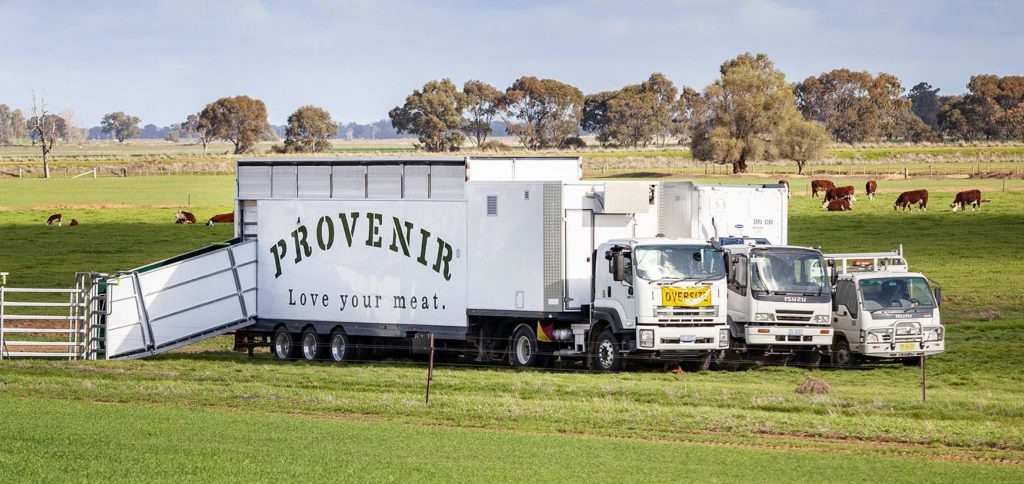
Less stress, better meat
The stress period in Provenir’s system is anywhere between about 30 seconds and three minutes. This is opposed to a minimum of two days in other production systems. And the difference this makes to the end product is enormous.
“Less stress means less adrenalin and cortisol produced,” explains Phil Larwill, Provenir co-founder, who is also a veterinarian and meat inspector. “Thus, more retained glycogen stores in the meat, leading to better meat quality.
“By respecting the life of the animal and the work farmers put into raising top-quality livestock, coupled with our on-farm process, Provenir is able to ensure the quality of the meat is retained and maximised throughout the whole process, from farm to fork.”
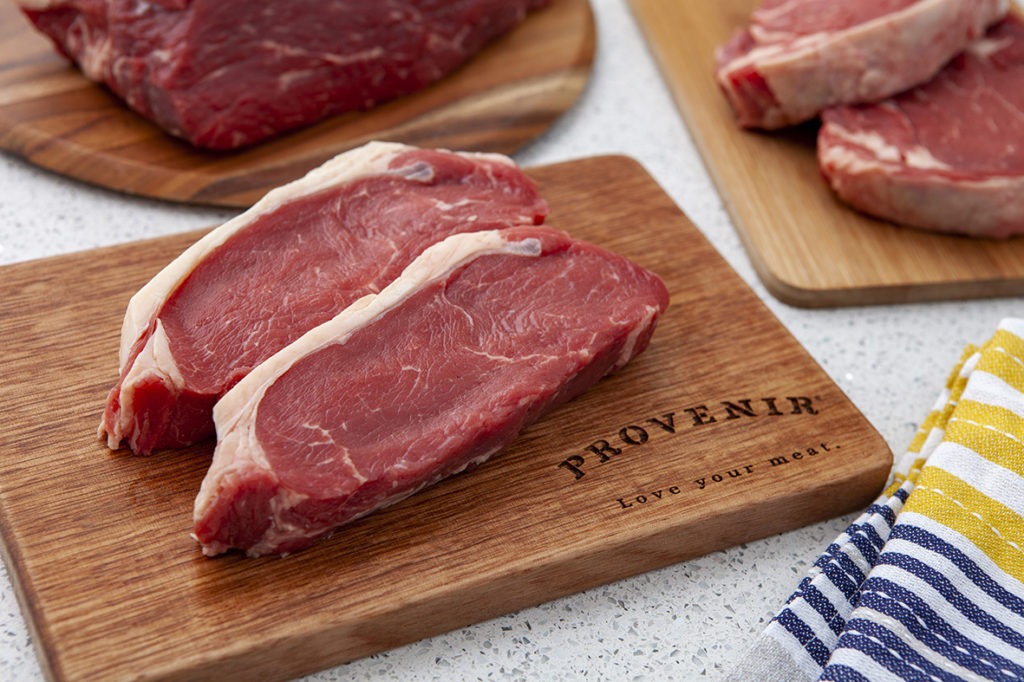
The proof is in the eating
Provenir’s system is so effective, a mere six weeks after the business started, it won Gold and Best in Class in the Branded Beef category of the 2019 Australian Food Awards.
“It wasn’t specially fed cattle, and we didn’t have thousands of bodies to test for the best one,” Balazs says. “We didn’t do pH testing, and all the other stuff that our competitors do. At that stage, we were only processing maybe eight head a week. So we just grabbed what we had, and entered it – and were the only ones to win a gold medal. From there, we knew that there was something about removing the stress from the animal. The consistency of the quality of the product is increased.”
Provenir has now been operating for 18 months. Customers include Rockpool and Three Blue Ducks. The business is also aware of the need to reduce the impact of meat production on the environment, so partners with farmers who use regenerative practices.
“We don’t go to any feedlots,” Balazs says. “They’re all grass-fed, free-range farms. We believe that the flavour is a lot better from grass-fed product; it’s a lot better for the animals and it’s better for the environment.”
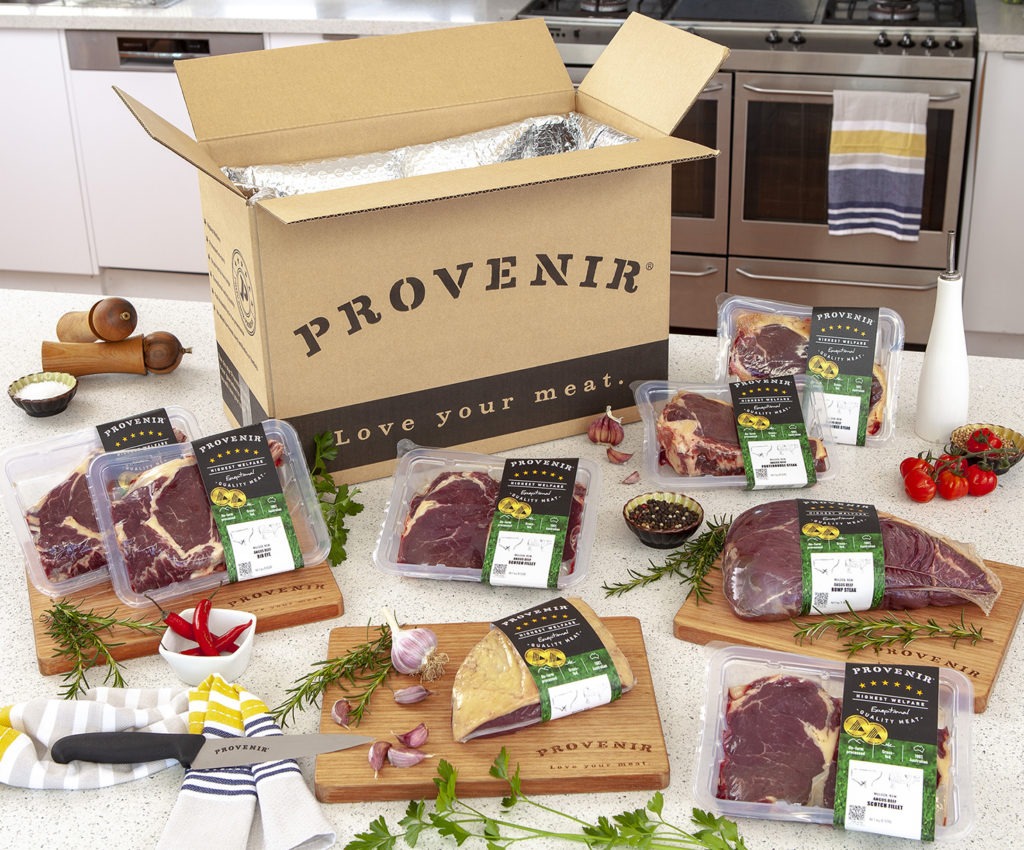
The whole story
Consumer interest in more sustainable and ethical farming practices continues to grow, as does curiosity about where our food comes from. Provenir has developed a system that allows its customers to access all the info they might want about the meat they’re buying.
“Every piece of meat we sell has a QR code which tells the story of where that animal came from,” Balazs explains. “If you’ve bought say, a Scotch fillet, you scan the code with your smartphone and it tells you what part of the animal it comes from and the best way to cook it. We also provide a profile of the farm that the meat came from; it’ll introduce who raised the animal, the farming practices they use, what they fed the animal. What we’re trying to do is create a connection between the consumer and the farmer.”
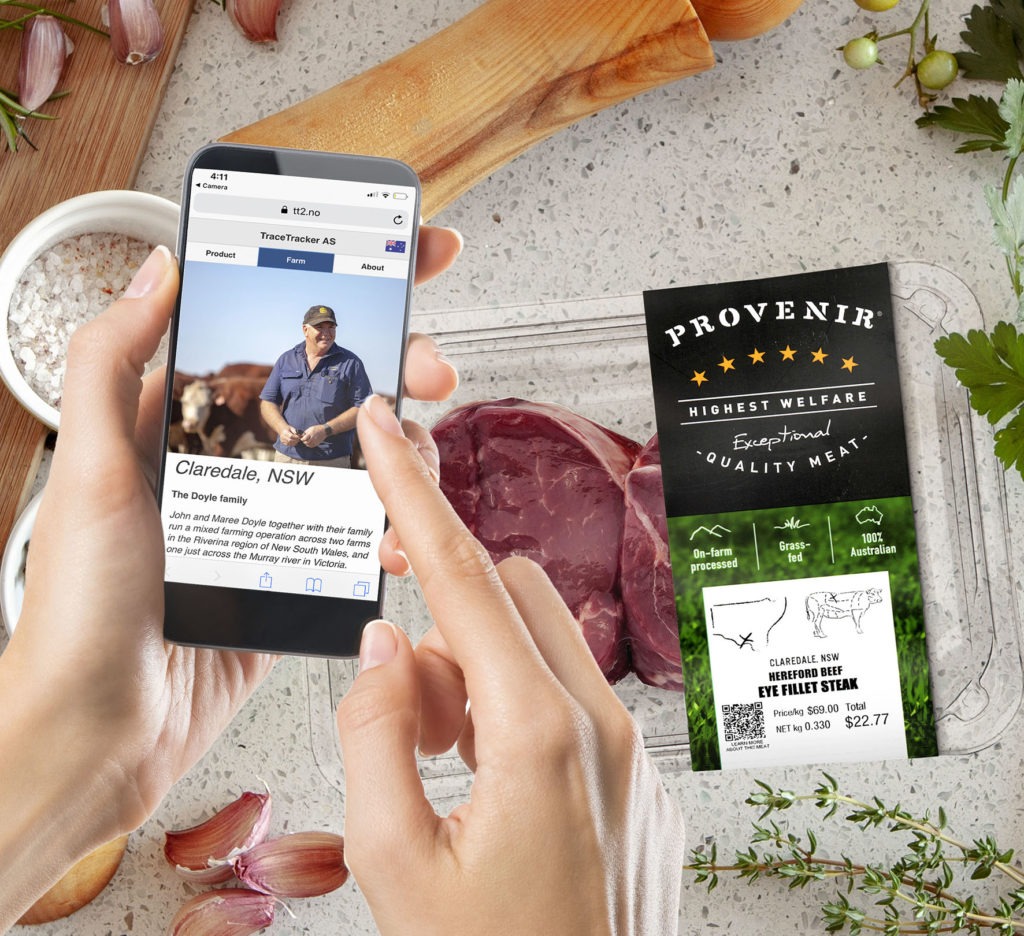
Full disclosure
The QR code also allows the consumer to know what breed of animal the meat comes from. The only commonly identified breeds are Angus and Wagyu. But when was the last time you went to buy some Shorthorn, Hereford or Speckle Park?
“There are hundreds of different breeds of cattle,” Balazs says. “But unless it’s Angus or Wagyu, it just goes down as ‘beef’.”
The farmers that Provenir has worked with have been impressed, with many saying being able to walk their animals up the ramp into the mobile abattoir gives them a sense of completion. Several farmers have even become shareholders in the company.
“Everyone knows what a good experience you get when you kill your own cattle on the farm,” says Hereford cattle farmer John Doyle. “The Provenir system is very similar to that. While it will be a first for many consumers, as farmers we’ve processed our own cattle on-farm and eaten that beef – we know there is nothing better.”
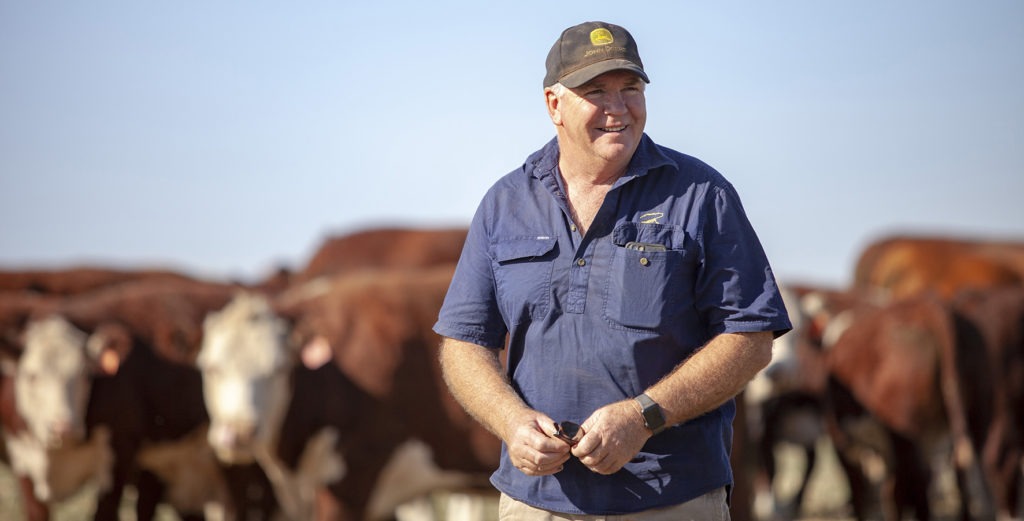
Meat like it used to be
Provenir currently operates one mobile abattoir across NSW and Victoria, but there are plans to expand, especially once laws change in Queensland to allow on-farm processing, which Balazs believes is only a matter of time now that NSW and Victoria are on board.
“It’s funny, we have long and often fruitless discussions with regulators,” he says. “A comment came back from one of the head regulators saying, ‘You’ve got to understand, when you’re creating these new and novel supply chains, it takes time for us to put them through’. I find it really surprising that they call this a ‘new and novel’ supply chain – people have been killing and consuming animals on-farm for millennia. Removing animals from the farm to be processed? That’s only been for the last 50 years.”
Provenir hopes it can genuinely disrupt the meat industry, and bring meat quality back to what it was generations ago. Operating such a business can be difficult, particularly from the outset, but the company’s market research shows that this is what consumers want.
“It was a pretty big hurdle to overcome to allow on-farm processing,” Balazs says. “There were a lot of costs and difficulties and complexities and regulatory hurdles that need to be navigated. However, the reward on the other end is meat that is produced using the highest animal welfare possible. And the quality is outstanding.”
For more about Provenir, or to taste the difference for yourself, head to the website.


